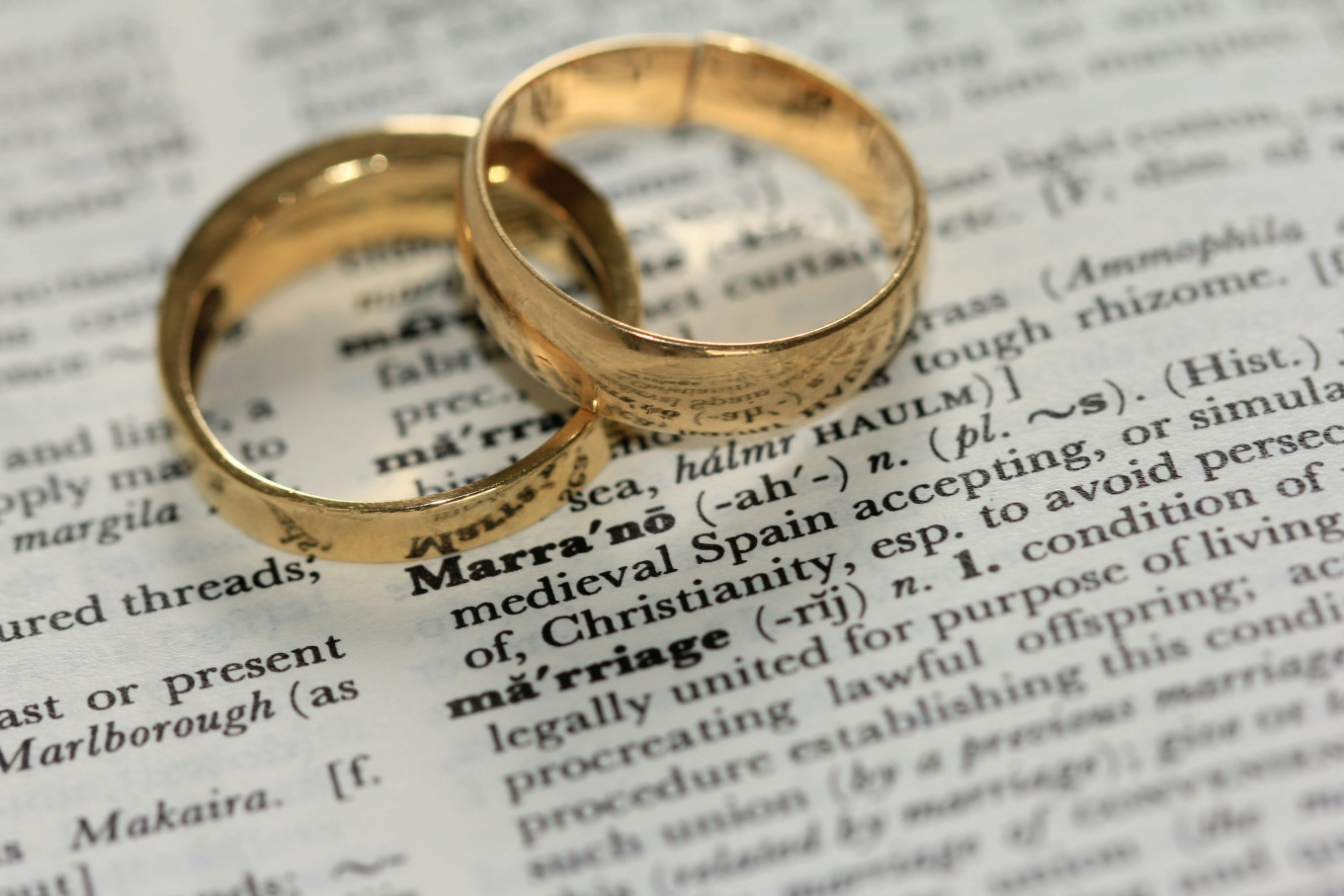Popular Reads
Top Results
Can't find what you're looking for?
View all search resultsPopular Reads
Top Results
Can't find what you're looking for?
View all search resultsCatholic man asks for Marriage Law review after failing to marry Muslim partner
Unable to marry his Muslim girlfriend, E. Ramos Petege from Gabaikunu Village, Central Mapia, Papua submitted a judicial review of Law No. 1/1974 on marriage to the Constitutional Court.
Change text size
Gift Premium Articles
to Anyone
U
nable to marry his Muslim girlfriend, E. Ramos Petege from Gabaikunu Village, Central Mapia, Papua submitted a judicial review of Law No. 1/1974 on Marriage to the Constitutional Court.
Ramos, a Catholic man, was aggrieved at the Marriage Law’s ambiguous stance on interfaith marriage after he and his Muslim partner of three years’ marriage wish was annulled.
Ramos questioned Article 2 paragraphs 1 and 2 of the Marriage Law, which he believed contained legal uncertainty. Paragraph 1 states that marriage is legal if it is carried out according to the laws of one’s religion and belief, while paragraph 2 states that every marriage is recorded according to the prevailing laws and regulations.
"This uncertainty has actually violated the constitutional rights of the applicant, so that he cannot carry out his marriage because of interventions by groups accommodated by the state," Ramos stated in his appeal on the Constitutional Court’s website on Feb. 4, as quoted by Kompas.com.
Ramos also questioned Article 8 of the Marriage Law, which states in point (f) that marriage is prohibited between two people in a relationship whose religion or other applicable regulations forbade them from getting married. He saw this as ambiguous in its implementation since marriage in Indonesia is inherent in various cultures, religions and ethnicities with its law being pluralistic.
Ramos believed the prohibition of interfaith marriage was a result of “differences in interpretation among legal experts,” and has reduced the “freedom and independence to adhere to certain religions and beliefs in carrying out interfaith marriages, which are guaranteed based on Article 29 paragraph 2 of the 1945 Constitution of the Republic of Indonesia," he stated, as quoted by CNN Indonesia.
Ramos had previously filed a similar lawsuit in 2014, only to be rejected by the Constitutional Court in its Decision No. 68/PUU-XII/2014.
At its core, Indonesian law does not specifically regulate interfaith marriages. The Supreme Court through its Decision No. 1400K/PDT/1986 had once granted an interfaith marriage for a Muslim woman who filed an appeal to marry her Protestant partner.
However, the applicant had chosen to submit their marriage registration to the Civil Registry Office, where marriages outside Islam are conducted. Thus, the Supreme Court saw it as the applicant denouncing her religious status, so the Civil Registry Office was allowed to carry out and register the marriage. This decision has since been used by others as a reference in applying for interfaith marriage permits.










